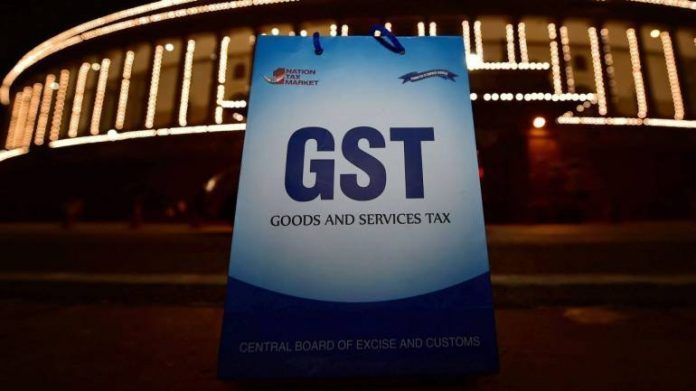All decisions will be effective from June 27, said Union Finance Minister Piyush Goyal
Televisions, refrigerators, washing machines, electrical appliances, perfumes and several handicraft items, among others, are set to get cheaper with the Goods and Services Tax (GST) Council on Saturday deciding to slash rates on a host of items. Millions of consumers, small traders and artisans will benefit from the move ahead of the festival season.
The Council has also decided to fully exempt sanitary napkins from GST, from the existing 12 percent. A high GST rate on sanitary napkins had imposed last year had triggered howls of protest from consumer activist and women groups.
In a mini-budget of sorts, the GST council significantly pruned the list of items placed in the highest tax slab of 28 percent, demonstrating the Centre and states’ growing confidence in the new system that seeks to unify India into one common national market.
Many handicraft items such as stone, marble and wooden deities, rakhis without precious stones, brooms and commemorative coins have been made fully exempt from GST, Union Finance Minister Piyush Goyal said.
Fortified milk has also been fully exempted from GST.
Handloom items such as knitted caps priced below Rs 1,000 will now attract a lower GST rate of 5 percent. All leather items will now attract a GST rate of 18 percent, while footwear priced below Rs 1,000 will be taxed at 5 percent.
Taxes on handbags, jewellery boxes, wooden photo frames, stone art wear, ornamental frame mirrors, glass art ware, aluminum art ware and handmade carpets have been cut to 5 percent from 12 percent.
In a boost for the textile industry, unclaimed input tax credit will henceforth be refunded to firms.
GST on hotel room rates will be now taxed at “declared tariffs”.
The GST rate on bamboo flooring, hand-operated rubber rollers and zip fasteners have been cut to 12 percent from 18 percent, while the GST rate on ethanol has been to cut 5 percent from 18 percent, a move aimed at encouraging higher ethanol blending in petrol and diesel.
The biggest rate cuts, however, came in white goods. GST rates on several consumer goods including refrigerators, lithium batteries, vacuum cleaners, grinders, mixers, food processors, water heaters, hair dryers, water coolers, ice cream freezers, scents, perfumes, powder puffs, cosmetics, and electric ironing machines have been cut to 18 percent from 28 percent.
All decisions will be effective from June 27, Goyal said.
“The decisions will benefit 125 crore citizens, particularly low and middle income families, traders and artisans,” the finance minister said.
Sources said rate cuts and certain clarifications will have revenue impact of Rs 10,000 crore-Rs 11,000 crore annually.
The council also approved the proposal to allow quarterly return filing for taxpayers with a turnover of upto Rs 5 crore, a move that will benefit nearly 93 percent of tax assessees as they would now be required to file returns only once in three months.
A new set of simpler return filing forms — Sahaj and Sugam — are also in the works that would be finalised soon, Goyal said.
The finance minister also said the GST Council has decided to focus on issues concerning the broader economy such as job creation rather than only on revenue targeting.
The controversial reverse charge mechanism (RCM) has also been deferred until September 2019.
Reverse charge is a mechanism where the recipient of the good or service will have to pay GST, which is otherwise paid by the supplier. The charge is applicable on a registered dealer, if he buys goods from a dealer not registered under GST. However, the receiver of the good/service is eligible for input tax credit, while the unregistered dealer is not.
Registered taxpayers (suppliers) were not willing to take the burden of paying tax, while small or unregistered taxpayers were running out of business as these registered dealers were hesitant to buy goods from them. Keeping this in mind, GST Council in October, 2017 had temporarily suspended RCM, as it was increasing compliance burden on taxpayers.
It has now been pushed till September next year.
The next GST council meeting will take place on August 4.
The council also approved about 50 categories of amendments in GST-related laws, with a broader idea to reduce compliance burden, simplify the indirect tax system and bring more entities under the tax net.
Amendments such as the omission of liability to pay tax on the reverse charge, enabling new return filing procedures, allowing more service providers to opt for composition scheme, among others has been suggested.The amendments in the Central GST (CGST) Act, 2017 will now have to be cleared by the Cabinet and will ultimately require the Parliament’s nod.


